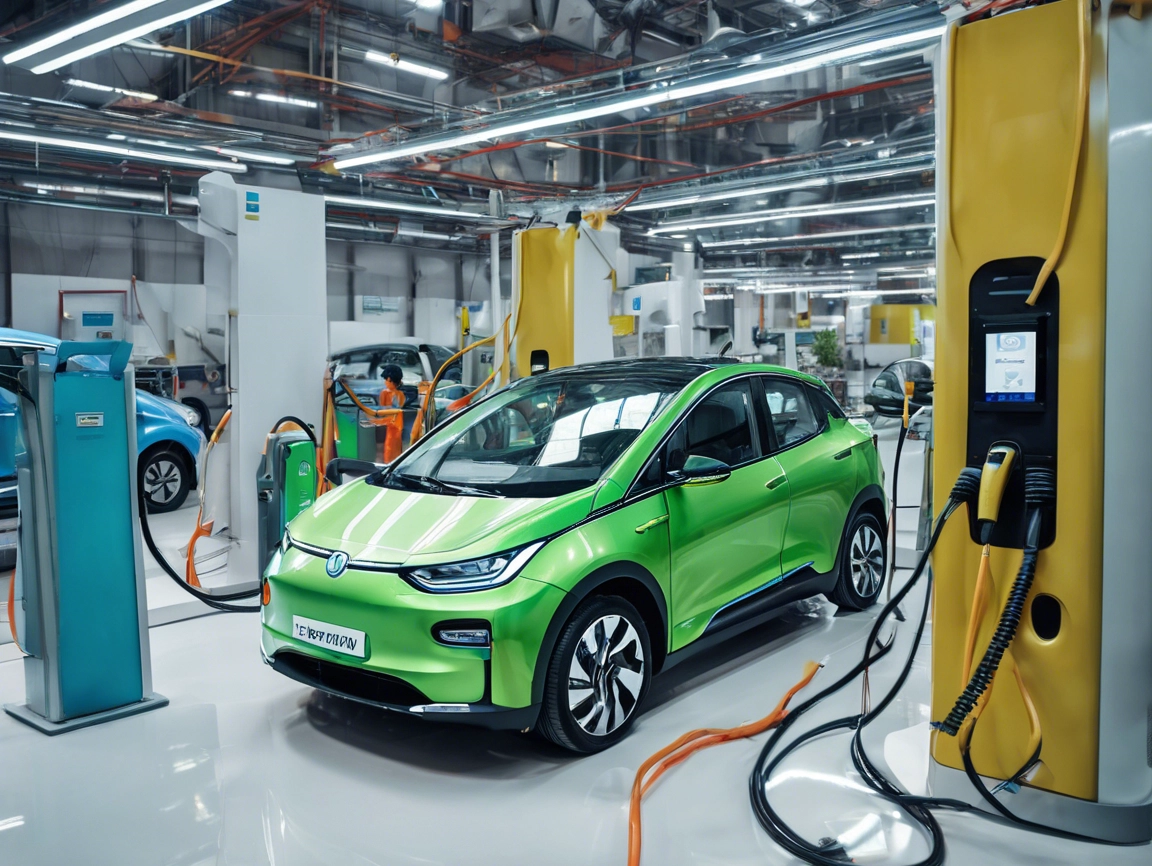
Haryana Launches Policy to Boost Electric Vehicle Manufacturing
- admin
- June 8, 2025
- Companies & Industry, Haryana
- EV, Manufacturing
- 0 Comments
In a progressive move towards sustainable development and industrial growth, Haryana has introduced a comprehensive policy to promote electric vehicle (EV) manufacturing. The initiative is part of the state’s broader vision to become a leading hub for EV production while supporting India’s transition to a greener future.
Key Features of the EV Policy
- Subsidies and Incentives:
The policy offers subsidies of up to ₹10 crore for establishing EV manufacturing units and provides 100% exemption on stamp duty for land purchases.
(Haryana Electric Vehicle Policy 2025) - GST Reimbursement:
Manufacturers are eligible for 50% reimbursement on SGST, reducing the financial burden on businesses. - Focus on R&D:
Incentives are available for companies investing in research and development (R&D), with grants of up to ₹1 crore for innovative EV technologies.
Strategic Focus Areas
- Battery Manufacturing:
Special emphasis is placed on the production of lithium-ion batteries with financial and infrastructure support for setting up battery plants. - Charging Infrastructure:
The policy promotes the installation of 1,000 charging stations across the state, with subsidies covering 50% of installation costs for private players. - Skilled Workforce Development:
Training programs in EV manufacturing and maintenance are being launched in collaboration with industrial training institutes (ITIs) to create a pool of skilled workers.
Economic and Environmental Impact
- Boost to Employment:
The initiative is expected to create over 50,000 jobs in manufacturing, assembly, and allied sectors by 2028. - Sustainable Development:
With increased EV adoption, Haryana aims to reduce carbon emissions by 15% by 2030, contributing to India’s climate goals under the Paris Agreement.
Investments and Collaborations
- Major Investments:
Companies like Hero Electric, Ola Electric, and Tata Motors have expressed interest in setting up manufacturing units in Haryana. - Public-Private Partnerships:
The government is actively engaging with industry leaders to accelerate EV production and streamline supply chains.
Challenges and Solutions
- Raw Material Dependency:
To reduce reliance on imported materials, Haryana plans to establish partnerships with domestic suppliers for EV components. - Awareness Campaigns:
The state will launch campaigns to promote EV adoption and educate the public on the benefits of electric mobility.
Future Plans
- EV Adoption Targets:
Haryana aims for 100% electrification of public transport by 2035 and offers incentives for individuals purchasing EVs, such as road tax waivers and registration fee exemptions. - Infrastructure Expansion:
Plans are in place to develop EV manufacturing clusters in districts like Gurugram, Faridabad, and Panchkula, leveraging their industrial strengths.
Haryana: Driving India’s EV Revolution
With its forward-looking EV policy, Haryana is positioning itself as a leader in electric vehicle manufacturing. The initiative not only bolsters the state’s economy but also supports the national agenda for a sustainable and environmentally friendly future.



